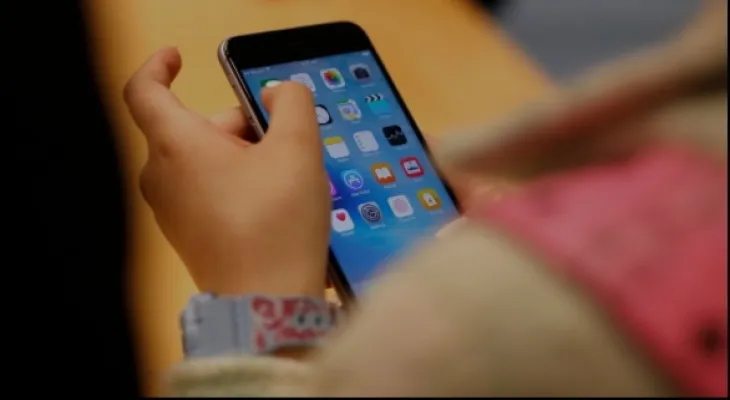Search here
Newspaper
Search here

Arab Canada News
News

Published: November 26, 2022
Researchers from the Stanford University School of Medicine followed more than 250 children who own phones from low-income families in Northern California for five years and found that the age at which children received their first phones had no noticeable impact on their grades, sleep habits, or depression symptoms.
The children were between 7 and 11 years old when the study began, and between 11 and 15 years old when it ended. The average age at which they received their first phones was between 6 and 11 years, with a sharp increase in phone ownership between ages 7.10 and 12.5 years. During that period, half of the children enrolled in the study received their first phones, and almost all children had phones by age 15, with 99 percent of them being smartphones.
Each child and one of their parents also underwent an initial baseline assessment at the beginning of the study, as well as annual follow-up assessments. During each assessment, researchers noted whether each child had received a phone that year and whether it was a smartphone. They also observed depression symptoms for each child, school grades, bedtime, wake time, and general daytime sleepiness. After each visit, the children wore accelerometers for a week to help researchers measure sleep onset and duration.
The researchers also controlled for factors that could skew the results, including each child’s age at the start of the study, gender and birth order, country of birth, parents' marital status and educational level, family income, frequency of speaking English at home, and each child’s progression through puberty.
They observed some changes after the children received their first phones; while depression indicators for the entire group decreased over time, the decline was slower when children owned phones compared to those who did not.
Additionally, researchers noted slight differences in sleep, with parents reporting that children slept less on school nights when they owned a phone compared to when they did not.
In the end, Sun and colleagues found that these differences were very minor and not statistically significant. They concluded that, overall, phone ownership was not positively or negatively associated with children’s overall well-being.
In the same context, the Canadian Paediatric Society also issued new guidelines this week regarding appropriate TV viewing time for young children and preschoolers. The organization had previously recommended a maximum of one hour per day for children aged two to five and no longer suggests a strict, hard cap for this age group.
Furthermore, it still recommends no screen time for children under two years old, except for video chatting with loved ones.
Comments